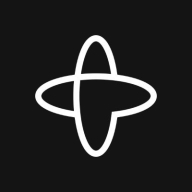

Appian and Temporal compete in the platform development and workflow management space. Appian seems to have the upper hand in user-friendliness and extensive features appealing to business applications, while Temporal has the edge with developers due to its robust workflow orchestration capabilities.
Features: Appian offers low-code rapid application development, process modeling, and seamless integration options. It supports diverse application types with functionalities like case management and mobile readiness. Temporal stands out for backend orchestration, efficient management of long-running processes, and excellent support for developer-focused workflows, enabling retry mechanisms and fault tolerance.
Room for Improvement: Appian needs to enhance DevOps integration, scalability, and UI customization, where developer intervention for complex tasks is often required. Temporal could improve by enhancing its appeal for newcomers, providing better documentation, and addressing minor scalability issues.
Ease of Deployment and Customer Service: Appian allows deployment across public, private, and hybrid cloud environments, backed by strong technical support, though scalability in service has been criticized. Temporal supports both on-premise and cloud deployments, benefiting from a supportive community despite limited dedicated customer service.
Pricing and ROI: Appian's pricing, though aligned with its features, can be costly for smaller enterprises. Its flexible licensing supports various business models, yielding ROI through operational efficiencies. Temporal, being open source, offers an economical option with minimal direct costs, appealing to organizations managing self-hosted setups.
They see return on investment in terms of cost savings, time savings, more efficient processes, and more efficient employees.
Appian is very efficient, allowing us to build a lot of applications within a financial year, making it cost-effective.
The ROI is apparent in terms of business case automation; previously, a bunch of people filled in data in NetSuite or managed stocks between warehouses and Amazon, but now everything is automated, saving time.
The technical support for Appian rates as 10 out of 10 because they have a great support team.
Their customer service is responsive, and the team is very prompt for support.
The technical support is generally good.
On a scale of one to 10, Appian rates as a nine for scalability.
Initially, without much coding, I can easily handle five thousand records.
Appian is scalable, but it depends on how you build your applications.
It depends on how it has been designed and how it has been configured.
The stability of Appian would rate as nine, as it's a stable environment.
It has room to improve for use cases where the users are public facing, where anonymous users could come to a site and run a business workflow or interact with some data.
I would like to see more enhancement in the user interface to allow more freedom in designing the sites and pages.
If there is a very complex process that includes a lot of data transitioning and memory-centric processes, it consumes a lot of memory.
On the pricier side, both Appian and Pega are enterprise-level solutions, placing them on the slightly higher side.
The pricing of Appian is based on the number of users and generally ranges from 70 to 100 USD per user per month.
The price of Appian, on a competitive landscape, is a little bit on the higher side for companies, rating maybe a 6.5.
The zero-code integration feature is remarkable, allowing for ease of data transfer and workflow enhancement.
Appian also utilizes AI for business users, providing a feature called process each view, enabling business users to create their own dashboards, reports, and gain insights from their data and processes using artificial intelligence.
I can create tables, perform database-related activities, and create multiple tables.
The deployment process is quite straightforward as it provides both Kubernetes and Docker Compose versions, allowing us to run it in ECS containers.
| Product | Market Share (%) |
|---|---|
| Temporal | 7.2% |
| Appian | 5.4% |
| Other | 87.4% |


| Company Size | Count |
|---|---|
| Small Business | 20 |
| Midsize Enterprise | 9 |
| Large Enterprise | 41 |
| Company Size | Count |
|---|---|
| Small Business | 8 |
| Midsize Enterprise | 4 |
| Large Enterprise | 6 |
Appian is a unified low-code platform and solution used by businesses to build enterprise applications and workflows. This product adapts to the needs of clients and the technologies they are already using to combine their data in a single workflow and maximize resources. The platform has four main components through which it transforms the work process for companies of various sizes. They are:
Appian is utilized across a diverse set of industries, including automotive and manufacturing, energy and utilities, education, financial services, telecom and media, transportation, retail, insurance, healthcare, and life sciences. The most frequent use cases of Appian are customer journey, governance, risk and compliance, operational efficiency, supply chain, distributed order management, and environmental, social, and governance (ESG) management.
Appian Features
Appian has various features that allow users to create solutions for their businesses. These features can be separated into a few groups according to function, including automation, low-code application development, and integrations and data. Some of the most frequently used features of Appian include:
Appian Benefits
The benefits of using Appian include:
Reviews from Real Users
A practice leader - digital process automation at a computer software company values Appian highly because the product is easy to develop, low-code, and has a good user interface.
Alan G., an advisory board member at Codecon VR, Appian offers a clear application life cycle, easy to learn documentation, and comes with a fundamentals course.
Temporal automates and manages workflows efficiently, offering resilience in distributed systems with features like retry and fault tolerance. Its capabilities in handling complex workflows and integrating with programming languages make it a valuable tool for managing diverse business logic.
Temporal excels in workflow orchestration, automating tasks across multiple platforms, and ensuring durability in asynchronous operations. It supports long-running workflows and simplifies handling distributed transactions, reducing boilerplate code. Temporal is noted for its durable execution and built-in retry policies, enhancing resilience. Despite its complexity and steep learning curve, it is valued for its integration with popular programming languages and relatively easy setup process, though it requires improvements in user-friendly features, documentation, community support, and security.
What are Temporal's key features?Temporal is implemented in sectors requiring robust workflow orchestration, such as managing data pipelines, API integration, and scheduling tasks. Organizations in a Kubernetes environment leverage it for its scalability and infrastructure management capabilities, securing integrations and enhancing reliability across IT operations.
We monitor all Process Automation reviews to prevent fraudulent reviews and keep review quality high. We do not post reviews by company employees or direct competitors. We validate each review for authenticity via cross-reference with LinkedIn, and personal follow-up with the reviewer when necessary.